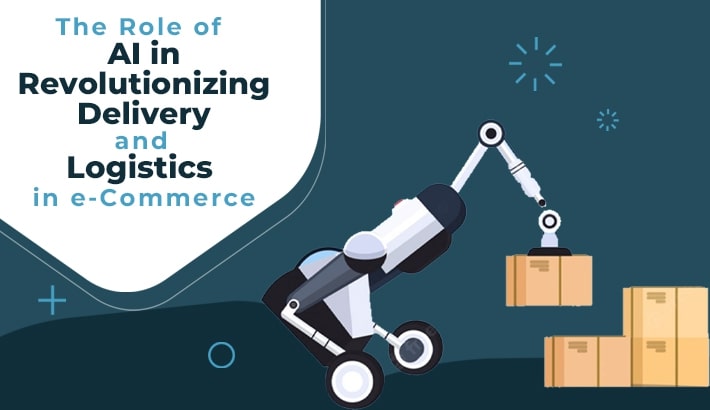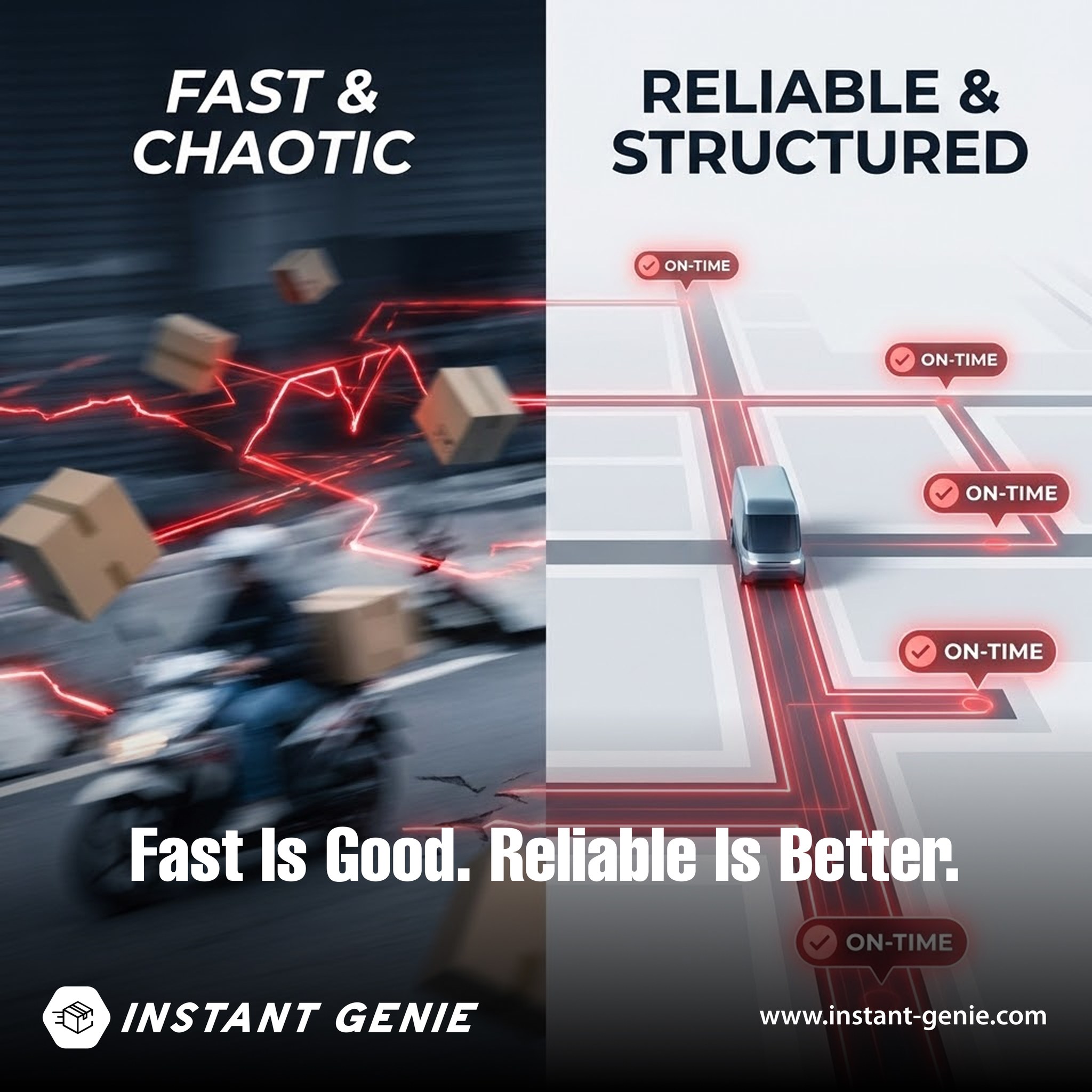Introduction
The rise of e-commerce has transformed the way people shop, making it more convenient for consumers to purchase products and services online. This increasing popularity of e-commerce has highlighted the importance of effective delivery and logistics in ensuring the success of businesses operating in this space. In order to meet the growing demands of customers, e-commerce companies are turning to artificial intelligence (AI) to revolutionize their delivery and logistics operations. AI has the potential to optimize processes, enhance efficiency, and improve the overall customer experience.
Overview of AI in E-commerce
Artificial intelligence (AI) is revolutionizing the e-commerce industry by enhancing doorstep delivery and logistics operations. With the exponential growth of e-commerce, effective delivery and logistics are crucial for the success of online businesses. AI in e-commerce refers to the use of advanced algorithms and machine learning to optimize various processes.
AI-driven optimization in delivery and logistics involves real-time route planning and optimization, reducing delivery time and costs. Predictive analytics utilize AI to analyze historical data for accurate demand forecasting, leading to improved inventory management and customer satisfaction.
Automation and robotics powered by AI streamline operations in fulfillment centers, enabling automated picking and packing processes and efficient inventory management. This increases speed, accuracy, and reduces costs.
AI also enhances the customer experience through AI-enabled delivery tracking and transparency with real-time updates and personalized delivery preferences. Additionally, AI-driven reverse logistics simplify the returns process, reducing customer frustration and improving satisfaction.
Overall, AI in e-commerce is transforming the delivery and logistics landscape, offering opportunities for businesses to optimize their operations, provide faster and more efficient deliveries, and enhance customer experiences.
AI-driven Optimization in Delivery and Logistics
AI-driven optimization in doorstep delivery and logistics is revolutionizing the e-commerce industry by improving efficiency and reducing costs. Through real-time route planning and optimization, AI algorithms can analyze various factors such as traffic, weather, and delivery volume to determine the most efficient routes. This not only reduces delivery time but also minimizes fuel consumption and labor costs.
Furthermore, AI enables predictive analytics for demand forecasting, allowing e-commerce businesses to accurately predict customer demands and optimize their inventory management. By analyzing historical data, AI algorithms can identify patterns, trends, and customer preferences, helping businesses optimize their stock levels, reduce wastage, and improve customer satisfaction.
Overall, the application of AI in delivery and logistics in e-commerce is transforming the industry by streamlining operations, increasing speed and accuracy, and enhancing the customer experience. With further advancements in AI technology and integration with emerging technologies like drones and autonomous vehicles, the possibilities for improving delivery and logistics are endless.
Automation and Robotics in Fulfillment Centers
Automation and robotics play a crucial role in streamlining operations in fulfillment centers. These centers are responsible for receiving, storing, and dispatching products for e-commerce businesses. With the introduction of AI, these processes have become more efficient, accurate, and cost-effective.
Automated warehouses and fulfillment centers utilize AI technology to automate various tasks such as picking and packing. AI-powered robots are programmed to navigate the warehouse, locate the required items, and pack them for delivery. This eliminates the need for manual labor and significantly reduces the time taken to process orders.
The benefits of automation in fulfillment centers are numerous. It leads to increased speed and accuracy, allowing businesses to fulfill customer orders more quickly and accurately. Additionally, automation reduces costs associated with human labor and minimizes errors that can occur during manual handling. Overall, automation and robotics in fulfillment centers have revolutionized the e-commerce industry by revolutionizing the delivery process.
Enhancing Customer Experience Through AI in Delivery and Returns
AI technology is revolutionizing the customer experience in e-commerce delivery and returns. With AI-enabled delivery tracking and transparency, customers can receive real-time updates and estimated delivery times, allowing them to plan their day better. AI also enables personalized delivery preferences, such as choosing specific time slots or delivery locations, ensuring convenience for the customers.
In terms of returns management, AI-driven reverse logistics simplifies the process for customers by providing automated returns labels and streamlined refund processes. This reduces customer frustration and improves satisfaction. By leveraging AI in delivery and returns, e-commerce businesses can enhance the overall customer experience and build long-lasting relationships with their customers.
Challenges and Considerations in Leveraging AI for Delivery and Logistics
When it comes to leveraging AI for delivery and logistics in e-commerce, there are several challenges and considerations that businesses need to address. Firstly, there are data privacy and security concerns. As AI relies heavily on data, it is crucial to ensure that customer information and sensitive data are protected throughout the AI-driven processes.
Secondly, ethical considerations in AI decision-making need to be carefully addressed. AI algorithms should be designed to prioritize fair and unbiased decision-making, avoiding any discriminatory or unethical practices.
Lastly, the integration of AI technology with existing systems and processes can be a complex task. Businesses need to carefully plan and implement AI solutions, considering factors such as compatibility, training, and potential disruptions to existing operations.
By addressing these challenges and considerations, businesses can successfully leverage AI in delivery and logistics, ultimately enhancing efficiency, customer satisfaction, and overall success in the e-commerce industry.
Case Studies: Successful Implementation of AI in Delivery and Logistics
One example of a successful implementation of AI in delivery and logistics is Amazon's use of AI-powered robots in their fulfillment centers. These robots, known as Amazon Robotics, help to automate the picking and packing processes, increasing efficiency and reducing human errors. The robots work in collaboration with human employees to fulfill customer orders faster and with higher accuracy.
Another example of successful implementation of AI in delivery and logistics is DHL's use of AI-powered predictive analytics for demand forecasting. By analyzing historical data and external factors such as weather patterns and events, DHL is able to accurately predict demand for their delivery services. This allows them to optimize inventory management, reduce stockouts, and improve customer satisfaction by ensuring timely deliveries
These case studies demonstrate the transformative power of AI in delivery and logistics, showcasing its ability to streamline operations, increase efficiency, and improve overall customer experience.
Future Trends and Possibilities for AI in Delivery and Logistics
The future of AI in delivery and logistics holds immense potential for revolutionizing the industry. Advancements in AI technology are expected to enable faster and more efficient delivery processes. Integration with emerging technologies like drones and autonomous vehicles will lead to enhanced last-mile delivery capabilities and reduced costs. AI-powered robots will play a crucial role in streamlining warehouse operations, resulting in increased speed, accuracy, and cost reduction.
Another significant trend is the possibility of same-day or even hour-based deliveries, made possible by AI-driven optimization and efficient route planning. AI-enabled delivery tracking systems will provide real-time updates and personalized delivery preferences, enhancing the overall customer experience. Additionally, AI algorithms will simplify reverse logistics processes, making returns management efficient and reducing customer frustration.
Overall, AI has the potential to transform delivery and logistics in e-commerce by improving speed, accuracy, cost-efficiency, and customer satisfaction. The continuous advancements in AI technology and its integration with emerging technologies will shape the future of the industry.
Conclusion
In conclusion, the implementation of AI in delivery and logistics is revolutionizing the e-commerce industry. AI-driven optimization enables real-time route planning and predictive analytics for accurate demand forecasting, leading to reduced delivery time, cost savings, and improved inventory management. Automation and robotics in fulfillment centers streamline operations, increasing speed, accuracy, and reducing costs. AI also enhances the customer experience through personalized delivery preferences and efficient returns management. However, businesses must address challenges related to data privacy, ethical decision-making, and integration with existing systems. Successful case studies from companies like Amazon and DHL highlight the positive impact of AI on delivery and logistics. Looking ahead, the future of AI in this field holds potential for faster, more efficient deliveries, integration with emerging technologies like drones and autonomous vehicles, and personalized, same-day deliveries.
Overall, AI is transforming the delivery and logistics landscape, offering opportunities for optimization, cost reduction, and improved customer satisfaction in the e-commerce industry.







Post Comments